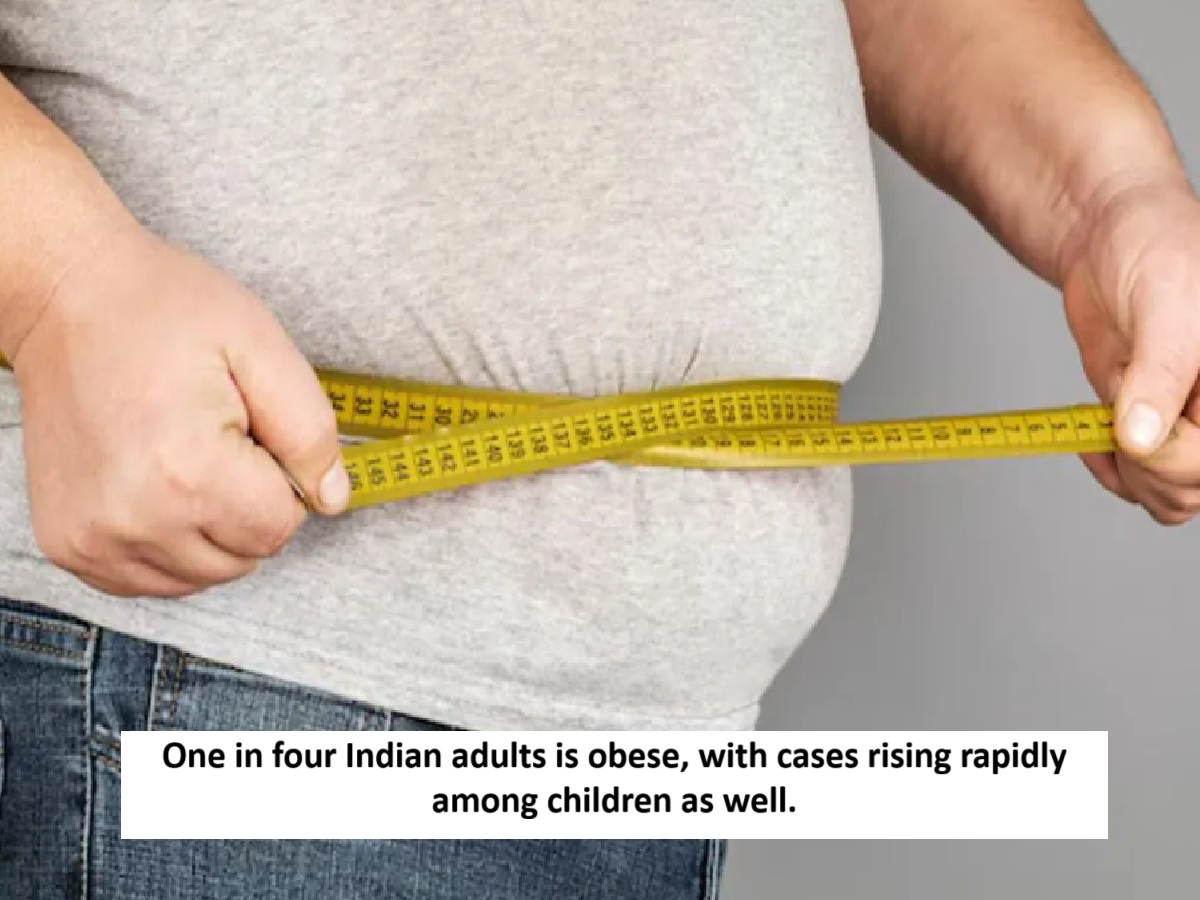
News Topical, Digital Desk : The rising rate of obesity in India has become a cause for concern. Obesity can lead to lifestyle-related diseases such as heart disease, diabetes, high blood pressure, high cholesterol and some types of cancer.
Nearly a quarter of Indian adults are now obese, according to a new study. The study, launched by the Tony Blair Institute for Global Change in Delhi, said India is at a turning point as the number of obesity-related diseases is rising rapidly in both urban and rural areas.
Around 27.4% of couples in India are obese or overweight. The report said that national data already reflects the severity of the problem. Citing the National Family Health Survey 2019-21, the study said that 41% of women in the capital are obese, while in Meghalaya the figure is 12%. Furthermore, the obesity rate among children aged six to 16 in Delhi is 22.8%, while in Maharashtra it is 13.6%.
Healthcare spending doubles in India, increasing pressure on the health system
The report, titled 'Building on Success to Secure India's Future Health', said 24 per cent of women and 23 per cent of men in India are either overweight or obese, nearly five times the rate 30 years ago.
This rate is higher in cities and varies widely across states. The report states that this pattern is part of a larger global trend. While healthcare spending has doubled worldwide over the past two decades, people are spending fewer years of their remaining life in good health. Health systems are under pressure due to increasing demand and dwindling resources to treat significant illnesses.
The growing burden of obesity can be reduced
Initiatives like Eat Right India and the Fit India Movement are helping to improve diet and physical activity. This year's tax on sugary drinks and work on obesity guidelines represent further action for prevention, it said.
It further stated that experts at the conference held in the national capital emphasized the need to make preventive health a key part of India's growth strategy. Vivek Aggarwal, Country Director of the Tony Blair Institute for Global Change, said that India is well-positioned to lead in obesity prevention. By combining technology, data, and community-driven action, India can not only reduce the growing burden of obesity but also build a stronger, more resilient health system for future generations.
Obesity rates have doubled since 1990.
Global obesity rates have doubled since 1990, now affecting nearly one billion people. If trends continue, more than half of adults worldwide could be either overweight or obese by 2050. The report warns that obesity is already increasing India's disease burden and putting pressure on the economy. Obesity costs India approximately US$2.4 billion in healthcare costs each year. It also reduces economic output by approximately US$28.9 billion, which is about one percent of GDP.
Read More: Want to get rid of a sagging belly? Pyramid walking is the easiest way, read its benefits.
--Advertisement--

 Share
Share



